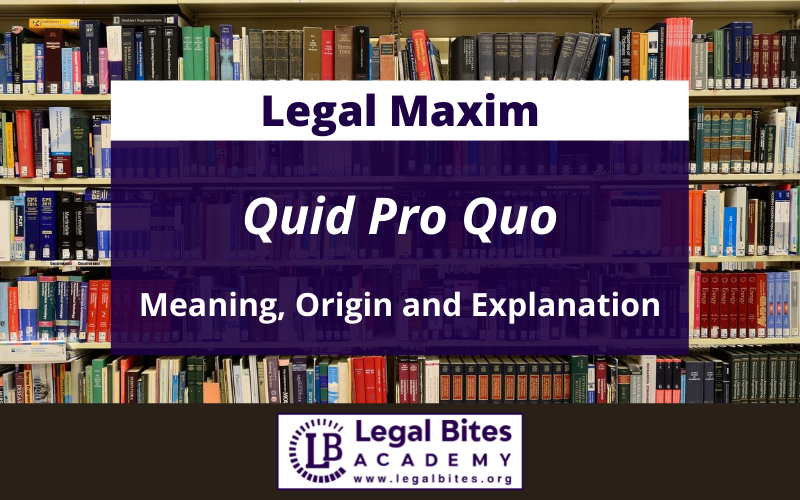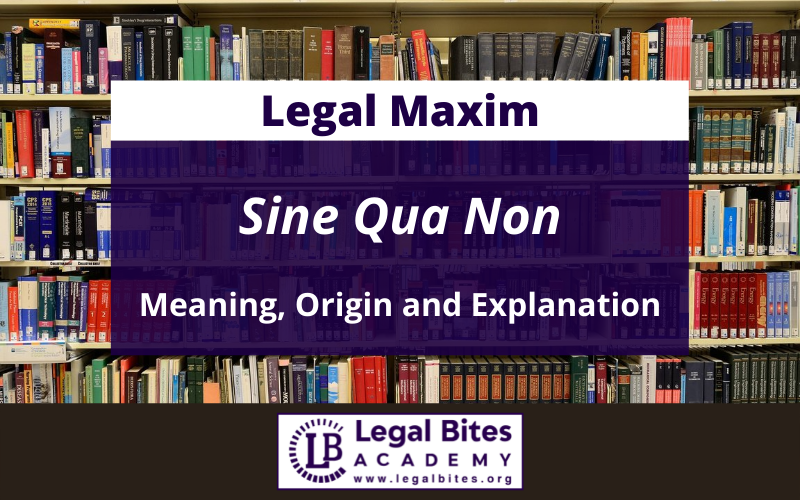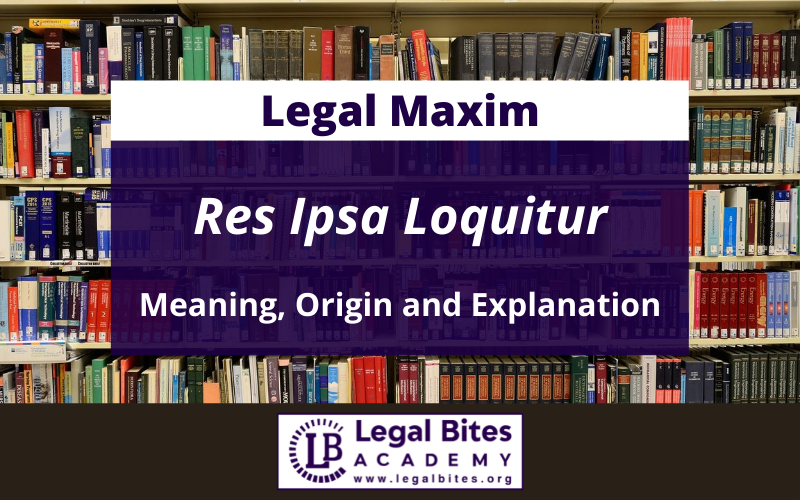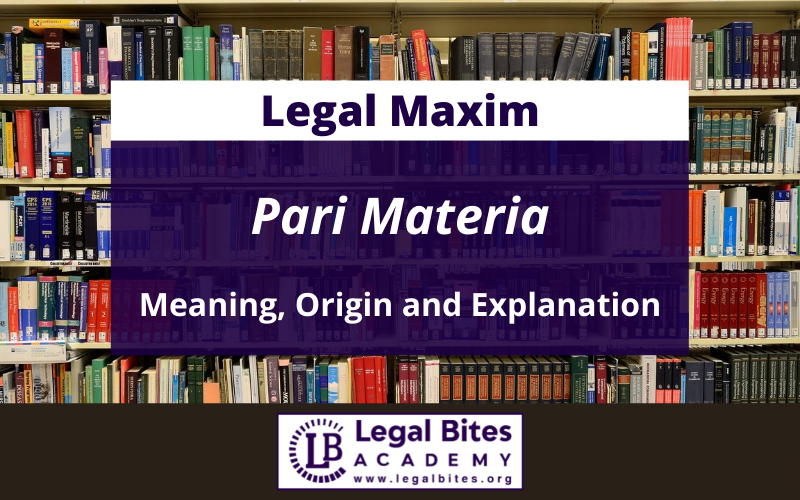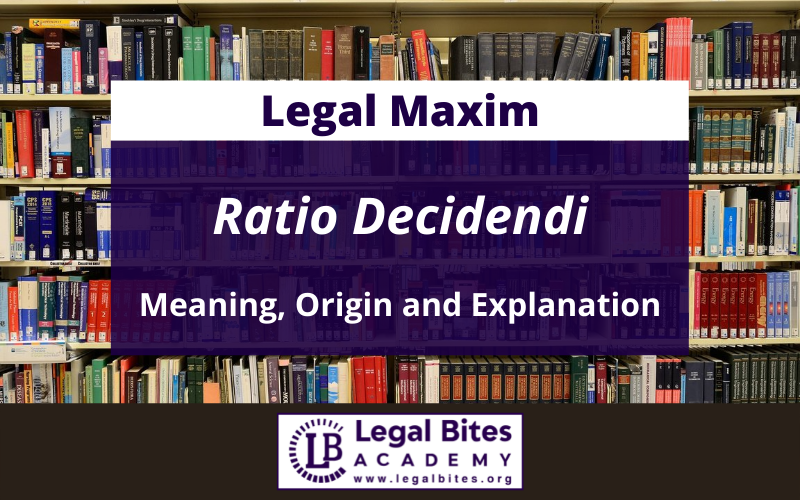Doctrine of Ad Hoc: Origin, Meaning, Application and Important Case Laws
This article on ” Doctrine of Ad Hoc” by Sahajpreet Bhusari explains the meaning, scope and application of the Latin maxim ‘ad hoc’. Origin and Meaning of Doctrine of Ad Hoc Ad Hoc is a legal term of Latin origin. It literally means, for a special purpose/ for a specific purpose. Generally, ad hoc committees and groups are formed… Read More »
;This article on ” Doctrine of Ad Hoc” by Sahajpreet Bhusari explains the meaning, scope and application of the Latin maxim ‘ad hoc’. Origin and Meaning of Doctrine of Ad Hoc Ad Hoc is a legal term of Latin origin. It literally means, for a special purpose/ for a specific purpose. Generally, ad hoc committees and groups are formed in order to help the government with particular tasks. Explanation As we can decipher from the meaning of the maxim from the Ad Hoc...
This article on ” Doctrine of Ad Hoc” by Sahajpreet Bhusari explains the meaning, scope and application of the Latin maxim ‘ad hoc’.
Origin and Meaning of Doctrine of Ad Hoc
Ad Hoc is a legal term of Latin origin. It literally means, for a special purpose/ for a specific purpose. Generally, ad hoc committees and groups are formed in order to help the government with particular tasks.
Explanation
As we can decipher from the meaning of the maxim from the Ad Hoc committees which are formed for a particular task and for the fulfillment of a specific purpose. These are usually created in situations when the main or the principal committee is unable to finish the task or needs assistance with the same. Feature of ad hoc committees are as follows:
- Temporary in nature,
- Formed for a sole specific purpose, and
- Dissolve when the purpose is fulfilled.
People who are a part of such groups are specialized in a specific area for which they are appointed.
Application
Examples for the application of the doctrine is as follows:
- Minors (less than 18 years of age), who cannot represent themselves in a suit are appointed ad hoc guardians by the court who represent them and help them exercise their rights and powers.
- The Chief Justice of India with the consent of the President has the right to appoint Ad Hoc judges to the Supreme Court when the quorum of judges is incomplete. Only judges who are competent to be appointed as the judges of the Supreme Court can be appointed as Ad Hoc judges.
Important Case Laws
In the case of Kalpana Mehta and Ors. v. Union of India[1], the Supreme Court attempted to analyze the purpose of parliamentary ad hoc committees. Such committees are framed for special specific purposes so as to assist the legislature when there is an increase in the bills introduced.
In the case of Schmidt v. Contra Costa County[2], it was held by the Ninth Circuit that an ad hoc decision is one which is taken on the basis of the circumstances of a particular case with a particular purpose as opposed from the coordinated policy.
Reference
[1] Writ Petition (Civil) No. 921 of 2013; 2018 Indlaw SC 295.
[2] 693 F.3d 1122 (9th Cir. 2012).



